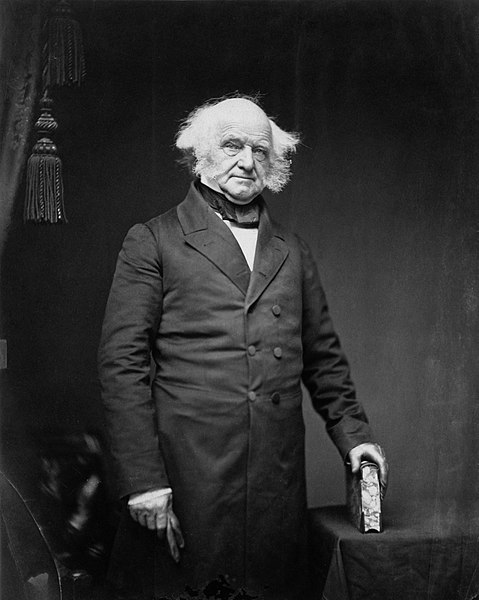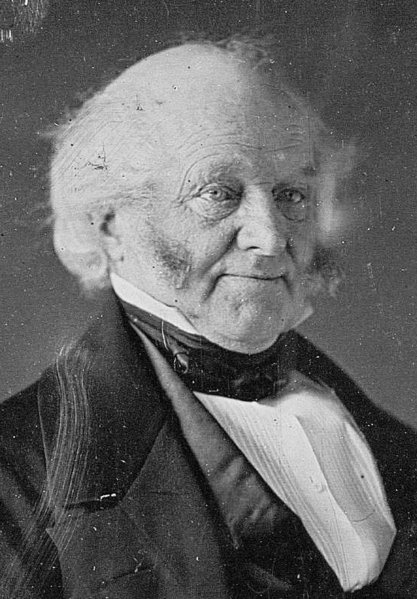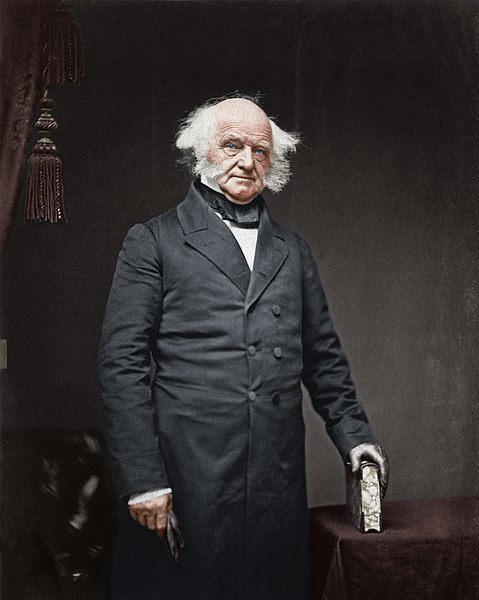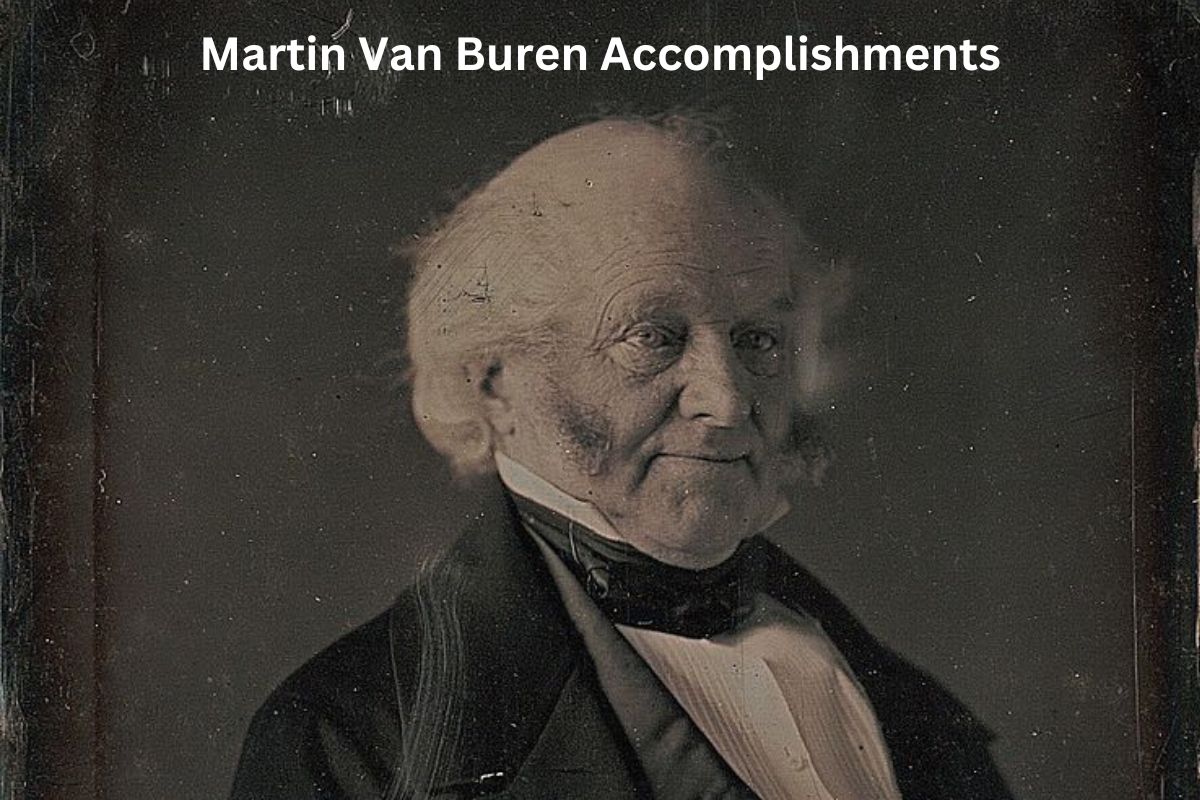Martin Van Buren, the eighth President of the United States, left a significant mark on American politics during the tumultuous period of the early to mid-19th century.
As a key figure in the formation of the Democratic Party, his presidency and career were marked by both accomplishments and challenges.
From his role as Vice President under Andrew Jackson to his economic policies and diplomatic achievements, Van Buren’s influence extended beyond his time in office, leaving a lasting impact on the nation’s political landscape.
Accomplishments of Martin Van Buren
1. Vice President under Andrew Jackson
Martin Van Buren served as Vice President under President Andrew Jackson from 1833 to 1837. During this time, he developed a close political relationship with Jackson, which greatly contributed to his presidential ambitions.
Also Read: Facts About Martin Van Buren
As Vice President, Van Buren played a significant role in providing advice and counsel to President Jackson. He was seen as a loyal supporter of Jackson’s policies, particularly with regard to his stance on the national bank.

2. Formation of the Democratic Party
Martin Van Buren is often credited with being a key figure in the formation of the modern Democratic Party. He was instrumental in unifying the various factions of Jacksonian Democrats into a cohesive political force.
The Democratic Party, under Van Buren’s leadership, championed a number of key principles, including states’ rights, opposition to a strong central bank, and support for westward expansion and territorial acquisition.
Van Buren’s efforts in organizing the Democratic Party laid the foundation for the party’s future success and its role in shaping American politics.
3. Dealt with the Panic of 1837
One of the most significant challenges of Martin Van Buren’s presidency was his response to the Panic of 1837, a severe economic depression that began shortly after he took office.
Van Buren’s administration faced a difficult economic situation, characterized by bank failures, widespread unemployment, and a collapse of credit.
His proposed remedy, known as the “Divorce Bill,” aimed to separate the federal government from banking and establish an Independent Treasury System to hold government funds.
While Van Buren’s response to the economic crisis was controversial and the Divorce Bill initially failed in Congress, the groundwork he laid for the Independent Treasury System would eventually become law during his successor’s presidency.

4. Establishment of the Independent Treasury System
One of Martin Van Buren’s significant accomplishments during his presidency was the establishment of the Independent Treasury System. This financial system aimed to safeguard government funds and reduce the influence of private banks in handling federal money.
The Independent Treasury System involved the creation of a network of government depositories where federal funds would be held, separate from private banks. This was intended to prevent the fluctuations and crises that had arisen from the mingling of government and private funds.
While Van Buren faced political opposition and criticism for his economic policies, including the Independent Treasury System, it laid the foundation for the modern Federal Reserve System and contributed to the development of sound fiscal practices in the United States.
5. Negotiated the Treaty of Wanghia with China
During Van Buren’s presidency, the United States sought to expand its trade relations with China. In 1844, his administration negotiated the Treaty of Wanghia with China, which opened up several Chinese ports to American trade and established a framework for diplomatic relations between the two nations.
The treaty was a significant achievement as it allowed American merchants greater access to Chinese markets and contributed to the growth of trade between the United States and China in the mid-19th century.
This treaty marked an early step in the United States’ engagement with East Asia and helped pave the way for future diplomatic and economic interactions with China.

6. Opposition to the annexation of Texas
Martin Van Buren’s stance on the annexation of Texas was a notable aspect of his presidency. He opposed the annexation of Texas, a territory that had recently gained independence from Mexico, and resisted efforts to admit it as a state.
Van Buren’s opposition was partly driven by concerns over the expansion of slavery, as Texas allowed slavery, and its annexation could potentially upset the balance between slave and free states in Congress.
His opposition to annexation contributed to his political downfall and played a role in his defeat in the 1840 presidential election. However, his stance reflected his commitment to maintaining national stability and avoiding conflicts with Mexico.
7. Influential in the Second Party System
Martin Van Buren played a central role in the development of the Second Party System in American politics during the 1830s and 1840s. This era saw the emergence of the Democratic Party as the dominant political force, while the Whig Party became its primary opposition.
As a key figure in the Democratic Party, Van Buren helped shape the party’s ideology and platform, emphasizing states’ rights, limited government intervention in the economy, and populist policies that appealed to the common citizen.
The Second Party System defined the political landscape for much of the antebellum period and contributed to the polarization of American politics.
8. Advocated for a strong federal government
Martin Van Buren believed in the importance of a strong and active federal government. This stance contrasted with some of his political opponents, including the Whigs, who often advocated for a more limited role for the federal government.
His support for federal power was evident in his efforts to establish the Independent Treasury System and maintain control over government funds, separate from private banks. He believed this was necessary to ensure the stability of the nation’s finances.
Van Buren’s advocacy for a strong federal government was aligned with his commitment to maintaining national unity and stability during a time of economic and political challenges.
9. U.S. Minister to the United Kingdom
Before becoming President, Martin Van Buren served as the U.S. Minister to the United Kingdom from 1831 to 1832. In this diplomatic role, he represented American interests in Britain and participated in negotiations related to trade and other bilateral issues.
His experience as a diplomat in the UK provided him with valuable international exposure and insight into foreign affairs, which would later benefit him in his political career.
Van Buren’s diplomatic service showcased his ability to navigate complex international relations and contributed to his reputation as a skilled statesman.
10. Played a key role in American political development.
Throughout his career, Martin Van Buren played a pivotal role in shaping the American political landscape.
His contributions to the formation of the Democratic Party, his advocacy for states’ rights and limited government, and his involvement in international diplomacy left a lasting mark on U.S. politics.
Van Buren’s leadership during a time of significant political change helped define the character of American democracy in the Jacksonian era. His ideas and actions influenced the direction of the country and contributed to the development of its political institutions.
While his presidency faced challenges and controversies, Van Buren’s legacy as a prominent statesman and politician endures in American history.
